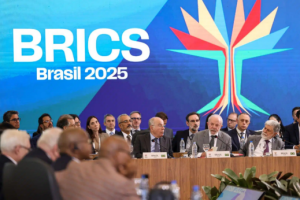
The sea is an important part of the globe that plays a significant role in the overall economic and political activities of countries. It is an important place for global trade, blue economy and national security.
There are strategic places in the seas and oceans of the world that influence the trade and security of the world. Due to the role they play in global economy and politics, they are usually points of scramble by countries from different corners. In addition illegal groups like terrorists and pirates could also target such sensitive areas to take advantage of the places strategic location to discharge their causes.
Therefore countries like Ethiopia that are closer to the sea and that have justifiable quest to access the sea need to maintain their right role. This motive is not limited to the interest of Ethiopia only, but the entire region.
Ethiopia’s recent naval accord with Russia represents a much-needed strategic step towards restoring the nation’s access to maritime capabilities. Historically, Ethiopia’s loss of direct access to the sea has been a result of political machinations by historical adversaries, compounded by internal strife. Therefore, the current efforts by the Ethiopian government to mend this gap are commendable and essential for national sovereignty.
The visit of a Russian Navy delegation, led by Deputy Commander-in-Chief Admiral Vladimir Vorobyev, to Ethiopian naval facilities marks a bold initiative aimed at revitalizing the Ethiopian Navy. This cooperation agreement, prompted by the collapse of an earlier partnership with France, signifies a renewed commitment to modernizing Ethiopia’s naval forces and enhancing maritime readiness.
Ethiopia and Russia have formalized their collaboration, focusing on training and capacity building, with Russia pledging substantial support. This partnership echoes an initial visit by Russian naval officials in 2022 and illustrates a deepening relationship that is vital for Ethiopia’s maritime ambitions.
Commodore Jamal Tufisa, Deputy Commander of Operations in the Ethiopian Navy, has emphasized that this collaboration will significantly bolster the navy’s ability to safeguard Ethiopia’s interests on the high seas. The Ethiopian Navy, once known as the Imperial Ethiopian Navy until 1974, has a rich history but has faced considerable challenges, particularly after being disbanded in 1996 following Eritrea’s independence, which rendered Ethiopia landlocked.
For years, the country maintained a maritime institute on Lake Tana, training over 500 marine engineers and electro-technical officers annually. The revival of the navy gained momentum in 2018 with Prime Minister Abiy Ahmed’s vision to restore naval capabilities—a clear shift in national policy.
Initially, Ethiopia sought assistance from France, culminating in a defense cooperation agreement during President Emmanuel Macron’s visit in 2019. However, as the partnership faltered, Ethiopia was compelled to explore new alliances, ultimately turning to Russia at a critical juncture marked by changing geopolitical dynamics in the Red Sea region.
The 2023 graduation of Ethiopian naval personnel trained in various disciplines further underscores the nation’s commitment to enhancing its naval capabilities. However, the operational plans for the new naval force remain uncertain, particularly given Djibouti’s reported reluctance to host the Ethiopian navy.
The agreement with Russia not only provides Ethiopia with a fresh source of expertise but also aligns with Moscow’s strategic interests. Russia has been actively seeking a foothold in the Indian Ocean, and the potential for collaboration with Ethiopia presents a timely opportunity amid Sudan’s ongoing civil unrest.
This partnership signifies a pragmatic shift for Ethiopia as it seeks to broaden its network of foreign collaborators and rebuild a navy capable of protecting its interests. While Ethiopia remains landlocked, its pursuit of maritime access and a modern naval force reflects a broader ambition to reassert its regional influence.
Critics within some media circles have expressed discontent regarding Ethiopia’s efforts to ensure access to the sea, often casting aspersions on the motivations behind Russia’s involvement. Such viewpoints can be seen as misguided, for Ethiopia is asserting its right to pursue maritime capabilities without undue scrutiny.
Ethiopia should not remain passive in the face of its maritime aspirations. Any attempts to undermine this endeavor are not only misguided but also reflect a lack of understanding of Ethiopia’s historical context and its rightful pursuit of access to the sea. The partnership with Russia represents a timely and strategic move that could reshape the future of Ethiopia’s naval ambitions.
Editor’s Note: The views entertained in this article do not necessarily reflect the stance of The Ethiopian Herald
BY MENGISTEAB TESHOME
THE ETHIOPIAN HERALD SATURDAY 14 JUNE 2025




